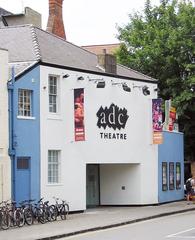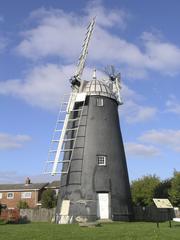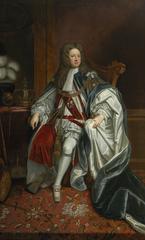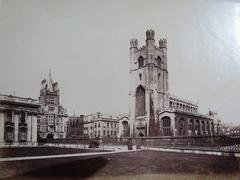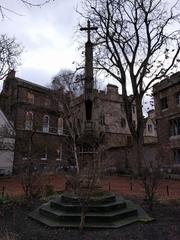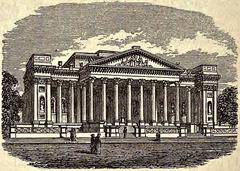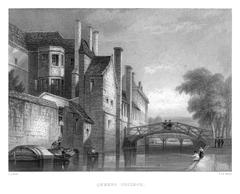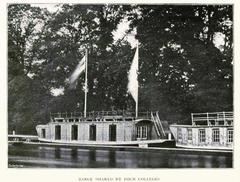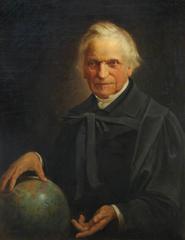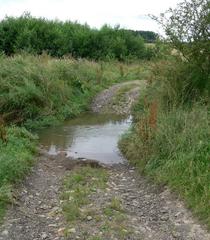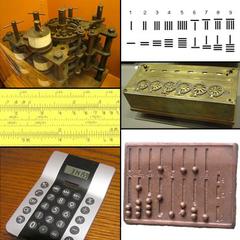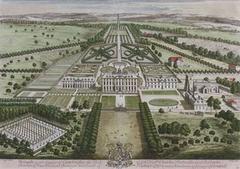Comprehensive Guide to Visiting The Centre for Computing History, Cambridge, United Kingdom
Date: 25/07/2024
Introduction
The Centre for Computing History in Cambridge, United Kingdom, is a treasure trove for tech enthusiasts and history buffs alike. Established to document and preserve the rapid development of computing technology, the museum offers an interactive and educational journey through the evolution of computing. From vintage hardware and pioneering personal computers to the latest innovations, the Centre for Computing History provides a comprehensive look into the world of computing. Founded in 2006 by Jason Fitzpatrick, Elaine Symonds, and Dr. Lisa McGerty, the museum has grown significantly since its inception, becoming an accredited museum in 2019 (CCH History). Cambridge’s rich history in computing, home to groundbreaking companies like Acorn Computers and ARM Holdings, makes it an ideal location for this unique institution. The museum not only showcases the technological advancements of the past but also engages visitors through hands-on exhibits and educational programs, fostering a deeper understanding of how computing has shaped our modern world (Hackaday Review).
Table of Contents
- [Introduction](#introductionintroduction)
- [Founding and Early Development](#founding-and-early-developmentfounding-and-early-development)
- [Growth and Recognition](#growth-and-recognitiongrowth-and-recognition)
- [Visiting Information - Hours, Tickets, and More](#visiting-information---hours-tickets-and-morevisiting-information---hours-tickets-and-more)
- [Leadership and Management](#leadership-and-managementleadership-and-management)
- [Educational Initiatives](#educational-initiativeseducational-initiatives)
- [Community Engagement and Support](#community-engagement-and-supportcommunity-engagement-and-support)
- [Preservation of Computing Heritage](#preservation-of-computing-heritagepreservation-of-computing-heritage)
- [Frequently Asked Questions (FAQ)](#frequently-asked-questions-faqfrequently-asked-questions-faq)
- [Conclusion](#conclusionconclusion)
Founding and Early Development
The Centre for Computing History (CCH) was conceived in 2006 by three friends - Jason Fitzpatrick, Elaine Symonds, and Dr. Lisa McGerty. The idea was to create a ‘hands-on’ museum dedicated to personal computing. Jason Fitzpatrick, who owned an extensive collection of computing-related artefacts, played a pivotal role in the museum’s inception. The trio formed a company in 2007 and began consulting widely about their vision for a museum of computing history in Cambridge, a city renowned for its contributions to the field of computing (CCH History).
In 2009, the founders established a charity to raise funds for the museum. Their efforts bore fruit, and by 2013, the Centre for Computing History opened its doors to the public in Cambridge. The museum’s mission was to tell the story of the computing revolution, which has irreversibly transformed global society. The museum’s founders aimed to create a space where visitors could engage with the history of computing in an interactive and inspiring manner.
Growth and Recognition
Since its opening, the Centre for Computing History has grown significantly. In 2019, it was awarded Accredited Museum status, a testament to its importance and the quality of its collections. The museum’s collection is internationally significant, comprising over 40,000 items, including vintage computers, ephemera, artefacts, documents, and hands-on displays. The core collection features over a thousand historic computers, mobile phones, games consoles, calculators, and interviews with computing pioneers (CCH Collection).
The museum also holds extensive Cambridge-related archives, such as the Sinclair collection and the Acorn collection. Notably, it hosts the largest collection of Lyons Electronic Office (LEO) artefacts in the world. These collections highlight the rich history of computing and its development over the decades.
Visiting Information - Hours, Tickets, and More
Planning a visit? Here’s what you need to know:
- Visiting Hours: The Centre for Computing History is open from Tuesday to Sunday, 10:00 AM to 5:00 PM. It is closed on Mondays except for bank holidays.
- Tickets: Tickets can be purchased at the museum or online. The prices are as follows:
- Adults: £9
- Children (5-16): £6
- Under 5s: Free
- Family Ticket (2 Adults + 2 Children): £24
- Concessions: £7
For more information or to book tickets, visit the CCH Tickets Page.
Leadership and Management
Jason Fitzpatrick served as the Chair of Trustees and later as the CEO of the Centre for Computing History until 2022. His passion, knowledge, and devotion to computing were instrumental in the museum’s early success. In 2022, Dr. Lisa McGerty took over as CEO, supported by the current Chair of Trustees, Gareth Marlow. Under their leadership, the museum continues to thrive and expand its reach (CCH Leadership).
The Centre for Computing History operates without government funding. It is overseen by a group of volunteer trustees, with day-to-day management handled by a dedicated staff team. The museum’s success is also attributed to the efforts of a small army of volunteers who contribute their time and expertise.
Educational Initiatives
One of the key objectives of the Centre for Computing History is to provide educational opportunities to a wide range of audiences. The museum offers a variety of learning services on-site, including programming and electronics workshops, activities exploring the history of computing, and other interactive educational opportunities. These programs cater to people of all ages, from pre-schoolers to the over-70s, enabling them to engage confidently and creatively with information and digital technologies (CCH Education).
The museum also delivers training sessions to teachers, equipping them with the knowledge, skills, and confidence to teach computing and its history in an engaging manner. By doing so, the Centre for Computing History ensures that the next generation understands the significance of computing and its impact on society.
Community Engagement and Support
Since its opening in 2013, the Centre for Computing History has welcomed over 160,000 visitors, including 18,000 school pupils. The museum aims to create an engaging and inspiring space where visitors can experience a sense of adventure, exploration, and wonder. To support its operations and initiatives, the museum relies on donations from individuals and corporate partnerships. Small donations can be made through the museum’s website, and major donations are also welcomed to help the museum move forward as a charity (CCH Support).
The museum shop offers a range of items for purchase, with proceeds going towards supporting the museum’s activities. Visitors can also contribute by donating artefacts or volunteering their time.
Preservation of Computing Heritage
The fast-paced nature of the computing industry, coupled with its tendency to discard outdated technology, poses a risk to the preservation of its heritage. The Centre for Computing History aims to safeguard this fundamental part of our history, ensuring that it is valued, celebrated, and secured for posterity. By preserving and showcasing historic computing artefacts, the museum provides a unique opportunity for visitors to understand the evolution of computing and its profound impact on modern society (CCH Preservation).
Frequently Asked Questions (FAQ)
Q: What are the visiting hours for the Centre for Computing History?
A: The Centre for Computing History is open from Tuesday to Sunday, 10:00 AM to 5:00 PM. It is closed on Mondays except for bank holidays.
Q: How much do tickets cost for the Centre for Computing History?
A: Ticket prices are as follows:
- Adults: £9
- Children (5-16): £6
- Under 5s: Free
- Family Ticket (2 Adults + 2 Children): £24
- Concessions: £7
Q: Are there any special events or guided tours available?
A: Yes, the museum often hosts special events and offers guided tours. Check the CCH Events Page for the latest updates.
Q: Is the Centre for Computing History suitable for children?
A: Absolutely! The museum offers interactive exhibits and educational programs suitable for children of all ages.
Q: Can I take photos at the museum?
A: Yes, photography is allowed. Be sure to capture your favorite moments and share them on social media!
Conclusion
The Centre for Computing History in Cambridge stands as a testament to the rapid growth and innovation of the computing revolution. Through its extensive collections, educational initiatives, and community engagement, the museum plays a crucial role in preserving and celebrating the history of computing. Plan your visit today and experience an enriching and inspiring journey through the history of computing. For more information, visit the official website.
References
- Centre for Computing History. About. https://www.computinghistory.org.uk/pages/176/About/
- Hackaday. Review: Centre for Computing History. https://hackaday.com/2017/03/30/review-centre-for-computing-history/
